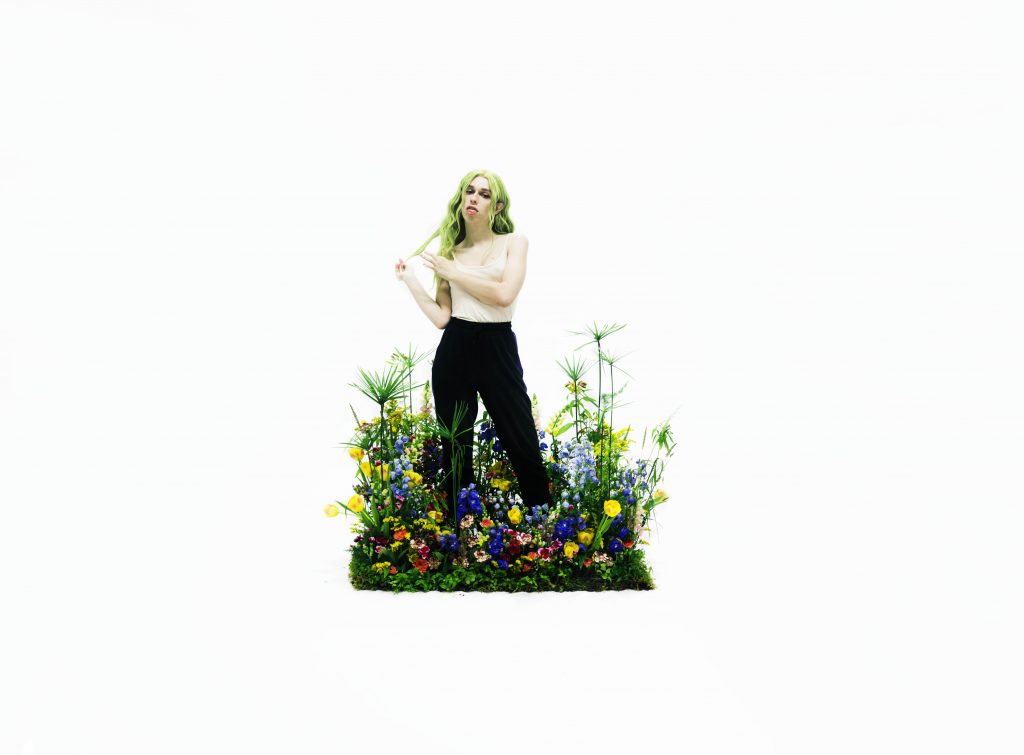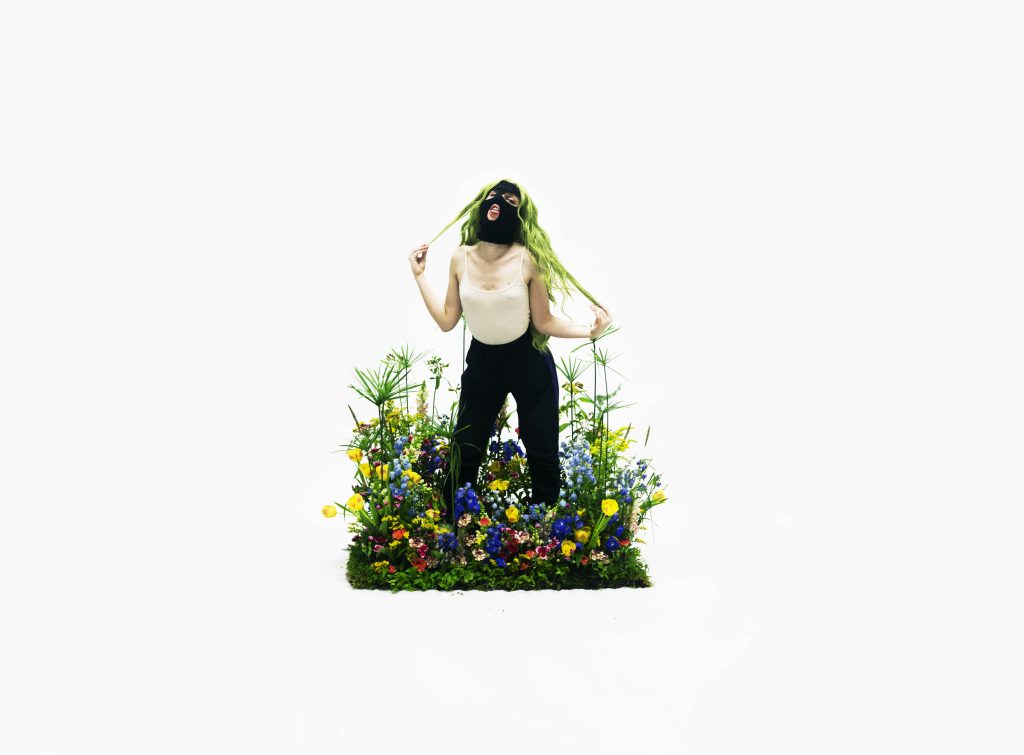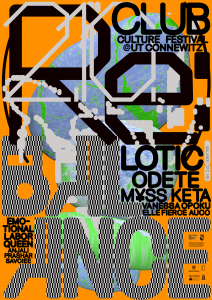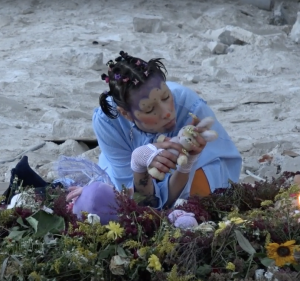In A Parable of Talents, American science-fiction author Octavia Butler famously wrote, “In order to rise/From its own ashes/A phoenix/First/Must/Burn,” alluding to the symbolic rebirth and destruction the character’s experiences throughout the book. It also gestures towards a vision of self-actualization, where time collapses into a singular form between past, present, and future selves. This process is one that Odete is currently undertaking.
The Portugal-based artist and DJ gained notoriety in the past few years, sharing mixes for Discwoman’s, Red Bull Radio, an album THE CONSEQUENCES OF A BLOOD LANGUAGE released via Genome 6.66mbp, as well as a performance piece On Revelations and Muddy Becomings that debuted at Libson’s Museum of Art, Architecture, & Technology. She will also perform at Balance Club / Culture Festival’s 2021 edition, Re:Balance, this weekend, October 2, 2021.

Throughout her work, Odete uncovers queer histories otherwise lost or abstracted, making connections between hauntology and cosmology to define a path towards self-discovery and invention. Described by the artist as archeology, her practice entrenches itself in assuring these narratives amidst social hierarchies that pathologize them. While subverting the influence of European colonialism and western media comes to mind; however, Odete sees another purpose for her work altogether: finding and connecting with themselves outside the constraints of time itself.
**Your Instagram bio says you’re ‘aiming towards a paranoid gothic arqueology’ – can you talk a bit about this?
Odete: It’s basically what I call my artistic processes lately. I came up with this term of paranoid archaeology to describe the process of looking through history and archaeology with a paranoid lens, trying to look for evidence/proof of the existence of bodies and lives like mine.
It is a process that writes a parallel history by imagining through the ruins of the past. I firmly believe that you can change the future by changing the past. It is a common strategy of fascist regimes. So, why can’t we reclaim it to show how history is a truth-making tool, a process of creating “reality”?
It is to take away the authority of that writing that I started this paranoid archaeology; also, to reclaim paranoia as a “positive” way to view the world, one that makes us question our contexts beyond the diagnosis and psycho-somatic categorization of our worldview/experience.
I think my friend Alice dos Reis summed it up pretty well when she wrote about my solo show:
O:‘We must look everywhere for traces of queer ancestrality—burnt, drowned, incarcerated, dissident experiences of gender, still living in documented trial accusations, discarded archaeological findings, cracks in medical reports, and forgotten myths. We must queer the disciplines of history, archaeology, and biology if we are to learn from the traces that have survived us to this day—if only to honour them. Paranoia as well as hysteria are psychosomatic symptoms invented by modernity often used to pathologise marginalised bodies, those deemed unable to perceive or integrate true rational thought. To reclaim “paranoia” as a method with which to study and look at archaeology is to reinscribe agency to those bodies over truth-making systems of exclusion.’
And “gothic” expresses my own aesthetic preferences and positions. I guess that’s it!
**In your last performance piece, you examine the relationship between corporeality, pleasure, and the earth. I’m interested in why you chose this theme (of the earth) for these concepts. Can you explain?
O:The earth here is the planet itself and not the element “earth”. Interplanetary thought is something that keeps reappearing in my artistic processes. I keep trying to imagine how a different planet would originate different bodies, languages and so on. When I failed to achieve the creation of other species and planetary cultures, I decided to focus on the planet I know: Earth. I decided to use it as a tool to hint that other realities in other planets might exist.
It was a performance piece that happened inside a forgotten Earth Archive and you hear glimpses of other creatures that enter the archive – that made interplanetary contact a reality of the piece without needing any description of other planets. It contextualized it into this sci-fi narrative.
Most importantly I wanted to position bodies categorized as trans as from the past, and not from the future. I’m tired of trans embodiment being seen a something that is announces a futurality, or that glimpses a reality still ahead of us. In sci-fi fiction it’s also common to see it as part of another planet or species. I wanted to reclaim it as ancestral – as part of the history of humans in this planet. I wanted to tie, to knot, to braid my body to Earth and to our species has been doing for all these past millennia.
There is a moment where I claim that the rock in front of me was once a statue of a goddess even though you cannot see any resemblance to any human figure. That moment goes on with a text claiming that the erosion of the sculpted human figure into abstraction is an act of Earth Writing; our planet communicating with us, saying things by acting upon them. It is our planet showing us ways of perceiving, of being “bodily” that go far beyond the anthropomorphic.
**There’s also this cosmological aspect that I’d like to discuss. Has that influenced your recent work? If so, how?
O: Of course! Speculating about the origins of the cosmos is central to the worlds I try to create. Cosmology is central to world building. You have to understand the mechanics of the core of the multitude of universes. you’re trying to describe. In my case, I’m interested in the speculation of something that exists and is unreachable.
I don’t know, I was always obsessed with death since I was a child and I could never grasp what death was or how to deal with it and I think that I’ve ended up here, trying to make sense of what is bigger than me – the ecosystems, the planet, the cosmos, etc.
I could say cosmology has a very spiritual dimension, one that makes one question and wander instead of believing and acting. I guess that’s what influences me the most. There is this book by Octavia Butler called Parable of the Talents, where the main character writes these truths and one of them is about creating roots in the stars. I think that’s what cosmology is for me.
**You also mention ghosts and specters. I’m wondering whether you’ve also considered external horrors as an opposing mode for implicating your ideas. Have you? If so, what role does terror play?
O: Ghosts and specters are something that has been prevalent in my life. I always had this connection with the undead, with memory, with ruins. I always felt haunted by things that were not anymore, be it people, situations or even economies. I felt (and feel) my world as one of ghosts, as one full of remains of a past that refuses to die completely.
Here in Portugal that is very clear: there are things that are not finished yet. Things the country refuses to accept and engage with. Our history is one of colonialism and slavery and you can sense it through architecture, through urban planning, through literature and of course through the way people’s imaginary works.

The refusal to deal with this reality face to face creates ghosts and specters all around. Instead of an embodiment, an homage, a ritual, etc., you have this haunted place where the colonial refuses to die because it’s people still linger on it as an “achievement”. Portuguese colonialism is seen here as something to be proud of, yes— as something that is essential to Portuguese national identity…Ugh, I think you can see where I’m going here. It’s truly scary. Ghosts are very different from spirits. They speak of violent deaths, of unfinished business. We can only hope ghosts get their revenge so they can be at peace.
I don’t know if terror plays any role. I’m not a huge fan of terror as genre. Usually, things that are associated with terror are things that have political connotations behind it. Terror lives through stereotypes of the monster as “other”, of a fear that is supposedly “irrational”. Usually what scares you in terror is usually connected with Jewish imagery, blackness, transness…and so on. There is this very famous American zombie movie where at one point a black man gets out of a house to warn everyone and the police shoot them because they think he’s one of the zombies. It sums it up pretty much.
**After seeing your work, if someone could walk away with a vision of the future, what would it look like in your eyes?
O: I hope they don’t walk with any vision of the future. To glimpse the future is very dangerous. I don’t want my work to propose any future of humankind, that’s a lot of responsibility! I hope people would get out of my pieces with a vision of something parallel to this reality, as if they encountered a different reality and that made them see the multitude of realities that make up our present time. I want them to sense something without time. Without any notion of progress. I really wish people could just use my work as a tool to connect with their lives. That’s all, really.**















